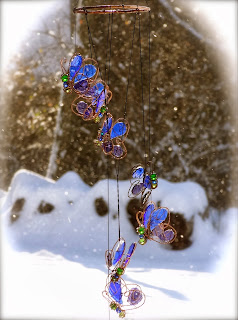 |
| photo courtesy of sxc.hu |
As writers we often add more to our question list. What goals should I set for 2014? Should I concentrate on word count, or keep record of writing hours? How many submissions do I want circulating in any one given week/month? How many acceptances should I aim for? What concrete goals should I set toward publication? What about those with young families where daily life is already packed with details--will catching a word here, a word there suffice?
In past years I've chosen a word or words to set a theme for the new year. In my first year of blogging I posted about targets (and repeated it here). In the second year (2011), my word was potential (here). The third year? Relax, write, create. This past year I went with the p's--potential, permission, pattern, pace, priorities. One trick I've used to stay productive yet not succumb to unreasonable pressure is to list my weekly/yearly goals and then tell myself if I hit 75% of those goals, I'll be happy. I've tallied this year and have come in at 77%. Yay!
Thus, thinking of a new year, I thought it might be fun to open writing books (I have so many on my shelves) and peek into the introductory inspiration laid out at the beginning from seasoned writers. I discovered three themes--and I'm adopting them as my themes for 2014. Take a peek:
1. Beginnings. From One Writer's Beginnings, by Eudora Welty: "In our house on North Congress Street in Jackson, Mississippi, where I was born, the oldest of three children, in 1901, we grew up to the striking of clocks. There was a mission-style oak grandfather clock standing int he hall, which sent its gong-like strokes through the livingroom, diningroom, kitchen, and pantry, and up the sounding board of the stairwell. Through the night, it could find its way into our ears; sometimes, even on the sleeping porch, midnight could wake us up. My parents' bedroom had a smaller striking clock that answered it. Though the kitchen clock did nothing but show the time, the diningroom clock was a cuckoo clock with weights on long chains, on one of which my baby brother, after climbing on a chair to the top of the china closet, once succeeded in suspending the cat for a moment. I don't know whether or not my father's Ohio family, in having been Swiss back in the 1700s before the first three Welty brothers came to America, had anything to do with this; but we all of us have been time-minded all our lives. This was good at least for future fiction writer, being able to learn so penetratingly, and almost first of all, about chronology. It was one of a good many things I learned almost without knowing it; it would be there when I needed it."
2. Hope. From The Writer's Book of Hope, Getting from Frustration to Publication, by Ralph Keyes: "Sit at desk. Examine blank computer screen. Cursor blinks impatiently. Small fan hums within. Neighbor fires up leaf blower. Mail truck rumbles by. Kid's voice pierces closed door: 'Matthew hit me!' Spouse opens door, mail in hand. Hands over two manila envelopes addressed to you in your own handwriting. Spouse wonders when you'll be ready to quit. When indeed?"
3. A Journey Down the Stairs. From Finding Your Voice, How to Put Personality in Your Writing, by Les Edgerton: "A final word before we begin seeing exactly how to get to our own voices, lurking within. Relax. Yep, That's the word. Relax. Even though there are lots of exercises and examples and other nifty ways to get to your voice in the following pages, what we'll be involved in isn't thermonuclear physics or household plumbing or anything like those two incredibly complicated sciences. This is all about the voice you already own and have the owner's manual for. What we'll be trying to do here is have you simply remember stuff you already know to a T but have just misplaced in the basement of your mind. So...sit back and enjoy the trip down the stairs. You won't even need a flashlight. I've already switched on the light for you. Just use the handrail."
The things we need are there--our beginnings, hope, and a journey of exploration.
I think it sounds like a year of fun, don't you? What words/themes would you add?
Happy New Year to all who might happen to drop in!
_____________________________







































